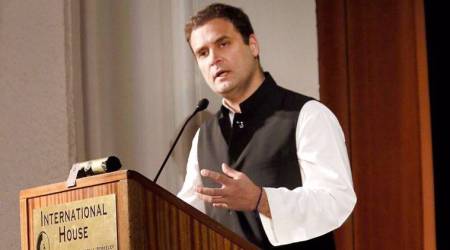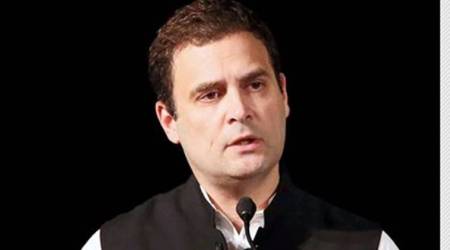 Be it dynastic politics, or the Congress’s serious credibility crisis on corruption and secularism, or its lack of deliberative capacity, Rahul Gandhi is part of the Congress problem, and in fact, more responsible for it than most.
Be it dynastic politics, or the Congress’s serious credibility crisis on corruption and secularism, or its lack of deliberative capacity, Rahul Gandhi is part of the Congress problem, and in fact, more responsible for it than most.
Speaking at the University of California, Berkeley, Rahul Gandhi accused the Narendra Modi government of many wrongs. Less predictably, the Congress vice president admitted that all is not well with the Congress. Any party in India that is in power for 10 years, Gandhi said, will run into a problem and the vision that the Congress laid out in 2004 was designed, at best, for a 10-year period.
By 2010-11, he said, it was already not working anymore. At the same time as this draining of vision, or because of it, the Congress had become arrogant. Gandhi also set the Congress failure in a wider context — of a global unravelling of the old order. “(It’s) not only us”, he said, pointing out that across the world, the inability to produce enough jobs was combining with the mounting pressures on institutions because of rising connectivity to rip apart older comforts and certainties, and giving an impetus to right wing forces.
There is heartening candour in Gandhi’s remarks at Berkeley, but there is a problem too. When he doesn’t paint the Congress decline as an irresistible cyclical downswing, in which the party had little agency, and over which it has scarce control, he points to solutions that are too wide, and which open up an escape hatch big enough for the Congress top leadership — and particularly Gandhi himself. The Congress, its VP said, needs to find the vision thing again primarily through the “conversation” it has stopped having since 2012.
Of course, parties must have multiple conversations with the people if they are to remain open to new and invigorating ideas. But surely, it is the task of leadership to steer these dialogues, and aggregate them, to give them shape, and define framing values and priorities. Surely, Rahul Gandhi, even if he is speaking in an academic environment, cannot sound like a very conscientious and disarmingly troubled student of Congress politics.
He has been vice president of the party since 2013, but by his own admission, he has been playing a larger and key role for much longer than that. Responding to a question on Kashmir, for instance, Gandhi claimed that he had worked “behind the scenes” and “silently” alongside Prime Minister Manmohan Singh and Union ministers P. Chidambaram and Jairam Ramesh, to break the back of the agitation in the state “for nine years”.
For him, then, to stand back now and assume a safe distance from Congress flailing and failure, is to unforgivably abdicate ownership. Be it dynastic politics, or the Congress’s serious credibility crisis on corruption and secularism, or its lack of deliberative capacity, Rahul Gandhi is part of the Congress problem, and in fact, more responsible for it than most. Leadership is also about taking ownership when things go wrong. That is, in fact, the first step towards making the ailing party better.

